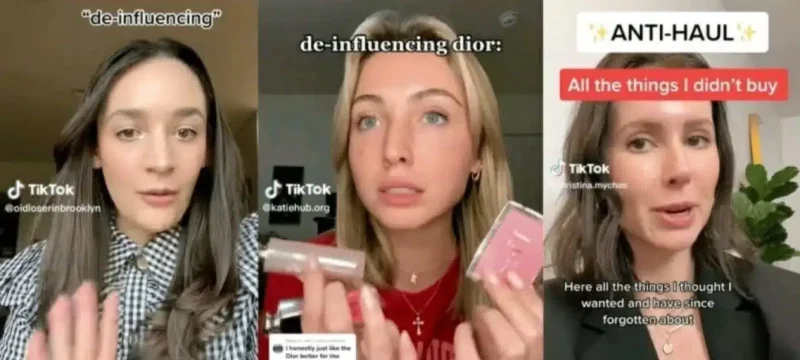In recent times, a new trend known as de-influencing has emerged in the realm of social media. This trend sees influencers taking a different approach by advising their followers on what products to avoid and which brands may not live up to the hype. By offering honest reviews and discussing the downsides of certain products, influencers are empowering consumers to make more informed purchasing decisions while also tackling the issue of over-consumption.
Read More: Lindsay Lohan Celebrates 37th Birthday and Pregnancy News with Joy
The Importance of De-Influencing
The de-influencing trend holds significant importance in today’s digital landscape. One of the key reasons behind this trend is the erosion of trust between influencers and their audience. As consumers become more aware of the influence of paid partnerships, they may question the authenticity of product recommendations. De-influencing helps rebuild this trust by showcasing influencers’ willingness to provide honest opinions, even if it means going against popular trends.
By advising against certain products, influencers demonstrate their commitment to putting their audience’s interests first. This act of transparency and authenticity resonates with consumers who value genuine recommendations over promotional content. When a beauty blogger, for instance, advises against purchasing a widely popular product, it enhances their credibility and strengthens the trust between the influencer and their followers.
The Power of De-Influencing for Brands
Interestingly, the de-influencing trend can also be leveraged by brands to promote their own products in a subtle yet effective manner. By collaborating with influential creators, brands have the opportunity to position their offerings as alternatives to overhyped or expensive products. For example, a popular beauty blogger could showcase a dupe for a high-end lipstick by using a more affordable brand, such as Lakme. This approach not only boosts the brand’s visibility but also increases the likelihood of driving sales as consumers seek out reliable alternatives.
In conclusion, the de-influencing trend marks a significant shift in the influencer landscape. It allows influencers to connect with their audience on a deeper level by providing authentic, unbiased reviews and recommendations. Moreover, it empowers consumers to make more informed choices, reducing the impact of over-consumption. Brands, too, can harness the power of de-influencing to subtly promote their products and tap into the growing demand for transparency and reliability in influencer marketing.









